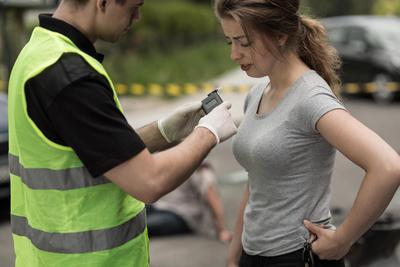Myth-Busting: The Impact of Alcohol-Based Hand Sanitizers on Alcohol Tests
Alcohol-based hand sanitizers have become a staple in our lives, especially since the pandemic, thanks to their convenience and effectiveness in reducing germs. However, some people worry that using these sanitizers too much could mess with alcohol testing results. This blog will cover the facts and expose some myths about the interaction between hand sanitizers and alcohol tests.

Can Hand Sanitizer Affect Blood Alcohol Tests?
Hand sanitizers contain high alcohol concentrations, such as ethanol or isopropanol, which can leave residual alcohol on the skin. However, the influence is usually minimal, and it is unlikely to impact drug testing results just due to skin applications alone. According to a study by the National Library of Medicine, ethanol-based hand sanitizers that are used according to the packaging instructions will not significantly raise alcohol levels in the blood.
Can Hand Sanitizer Affect Urine Alcohol Tests?
Ethanol from hand sanitizers mainly enters the body through breathing rather than absorption through the skin. This can potentially lead to a noticeable amount of ethyl glucuronide (EtG) in the urine, which might cause a false positive result even if the person hasn't been drinking alcohol. However, just getting the sanitizer on their skin doesn't have the same effect. This means that people who use hand sanitizers a lot, like in workplaces, might falsely test positive for alcohol use because of inhaling the vapors.
Can Hand Sanitizer Affect Breathalyzer Alcohol Tests?
While high alcohol-based hand sanitizers are effective, they raise questions about their impact on breath alcohol tests. The concern is that alcohol from the sanitizer might linger on the hands or in the mouth, potentially affecting breathalyzer results if someone tests immediately after using the product. Although the likelihood of hand sanitizers significantly influencing breathalyzer readings is minimal, it is possible for it to cause false positives, particularly if the hand sanitizer has not fully dried.
Healthcare Workers And Alcohol-Based Hand Sanitizers
Healthcare workers are some of the most frequent users of alcohol-based hand sanitizers due to their role in infection and disease control. Given the frequent use of these products, there has been concern about whether use could lead to false readings on breath alcohol tests.
One study revealed that frequent use of alcohol-based hand sanitizers can occasionally lead to positive results for alcohol intake, even if the sanitizer is applied correctly. The likelihood of a false positive increases when excessive amounts of hand sanitizer are used or when it is not dried properly, primarily due to the frequent or increased inhalation of the fumes.
Can Alcohol-Based Hand Sanitizers Cause False Positive Drug Test Results?
The short answer is yes, but multiple factors need to be considered, such as the type of test and the device used. For example, not all breathalyzers are created equally. Less advanced breath alcohol tests can mistakenly identify individuals with conditions like diabetes as intoxicated due to the presence of acetone in their system.
On the other hand, the U.S. Department of Transportation (DOT) has strict standards for Evidential Breath Testing (EBT) devices, which are outlined in 49 CFR Part 40. Only devices that meet these criteria are approved for breath alcohol testing under DOT regulations. EBTs are specifically designed to differentiate between alcohol and other substances like acetone, which can be present in individuals with conditions such as diabetes. This capability reduces the risk of a false positive due to acetone.
Choose Reliable and Accurate Drug Testing Services With Health Street
For alcohol testing, Health Street is the trusted choice. Feel confident in your testing outcomes and choose peace of mind with Health Street. Register online or give us a call today.






